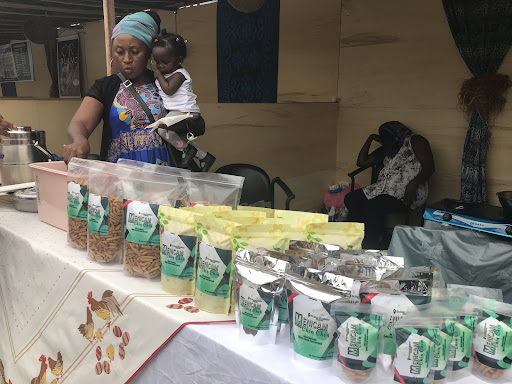The Cameroonian Women Grinding Flour By Hand To Escape The Russian Wheat Trap
Rising flour prices due to the war between Russia and Ukraine are forcing women in Cameroon to look for other options. For now, it is arduous work which they are doing by hand, producing little more than a few bags a day.

Cassava Flour could -gradually- win the hearts of Cameroonian households, according to a group of women aiming to reduce the country’s dependency on imported wheat from Russia, one bag of flour at a time.
It will be a long process, however, as currently the company is only able to grind the flour by hand.
Russia is Cameroon’s leading wheat supplier. According to the National Institute of Statistics, between 2010-2020, 65 percent of the country’s total imports came from Russia, now under international sanctions after sending troops into Ukraine last year.
Russian grain shipments are not targeted by the international measures, but problems with processing payments through sanctioned banks have driven costs up.
Official figures from the government say wheat prices have increased by a quarter. But in markets further away from the ports, HumAngle discovered prices have risen by much more than that.
In Kumbo, Northwest province, the price of wheat has jumped by as much as 42 percent, because of profiteers gauging prices.
From 19,000 FCFA, a bag of flour now costs 25-27000 FCFA, depending on the locality.
The quality of flour has decreased too, people say.
“I love eating bread. I consume it daily in my house. But the bread we eat today is completely different,” Jeanette Elimbi, a Douala resident, said. There was something amiss with the texture, “It is more expensive and the foam we usually have in it is no longer there”.
All this pushed Mercy Sambang and her sisters to experiment with Cassava as a substitute. In six months, they worked out how to produce cassava flour and started a company called Menicam.
By hand
“We were experimenting when we discovered that cassava is something that can be adapted to replace wheat,” said Joan Mary Kinyuy, one of those working with Mercy.
They are limited by a lack of machinery, the whole milling process is done by hand.
At the moment, they have little capacity to produce on a large scale, so the price of a kilo of cassava flour is currently very similar to wheat in the market. But the women hope they can at least halve the price, if investors can help them mechanise the process.
They mostly use the flour to make their own snacks like chin-chin and pancakes.
“The transformation process is tedious. The whole process is tedious since we don’t yet have better machines to dry, grind and cut. We do all these manually. We work on 50 kg daily”, said Njenje Honorine, another woman involved.
Cassava is a cash crop widely farmed and consumed in Cameroon. The women of Menicam were amongst other female entrepreneurs invited by the Commission for Female Entrepreneurs at the Cameroon Employer Organisation, GICAM.
GICAM president Celestin Tawamba encouraged women to engage in entrepreneurship especially in the field of agriculture so as to ensure food independence.
“We realised depending on foreign foods all the time was becoming a worry”, he said.
Support Our Journalism
There are millions of ordinary people affected by conflict in Africa whose stories are missing in the mainstream media. HumAngle is determined to tell those challenging and under-reported stories, hoping that the people impacted by these conflicts will find the safety and security they deserve.
To ensure that we continue to provide public service coverage, we have a small favour to ask you. We want you to be part of our journalistic endeavour by contributing a token to us.
Your donation will further promote a robust, free, and independent media.
Donate HereStay Closer To The Stories That Matter




